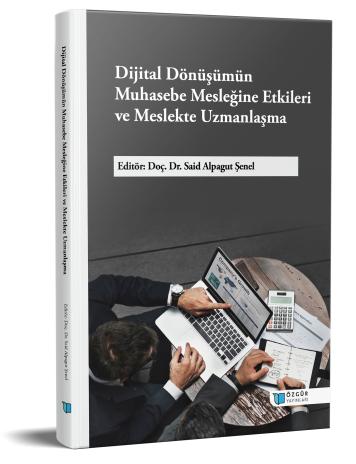
The Transformative Role of Digitalization on Internal Control Systems: COSO 5.0 Model Proposal
Chapter from the book:
Şenel,
S.
A.
(ed.)
2025.
The Effects of Digital Transformation on the Accounting Profession and Specia-lization in the Profession.
Synopsis
The acceleration of digital transformation has made it imperative for businesses to reshape their internal control systems. Although traditional internal control systems are organized to ensure financial accuracy, risk management and regulatory compliance, new approaches such as Industry 5.0 and Society 5.0 require these systems to be more flexible, integrated with digital transformation and data-driven. While Industry 5.0 optimizes production and management processes with hyper-automation, artificial intelligence-supported decision-making, quantum computing, digital twins and robotic process automation by emphasizing human-machine collaboration, Society 5.0 integrates economic growth with social welfare through artificial intelligence-supported healthcare systems, smart cities, green energy solutions and ethical artificial intelligence applications with a sustainable and human-oriented digital transformation approach. Digital transformation strengthens the risk management and decision-making processes of enterprises by making internal control systems more transparent, traceable and effective. In this direction, the COSO 5.0 model is proposed in this study by addressing the impact of digital transformation on internal control systems. The COSO 5.0 model updates traditional internal control components in line with the requirements of the digital age and includes elements such as artificial intelligence-assisted management, blockchain-based security systems, autonomous risk assessment and decentralized data integration. As a result of the study, it was concluded that the COSO 5.0 model.

